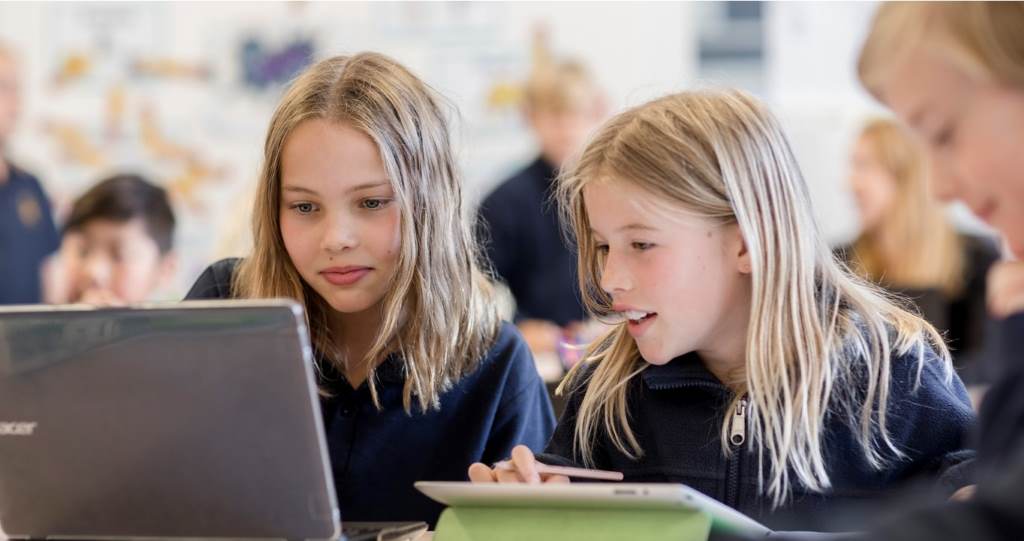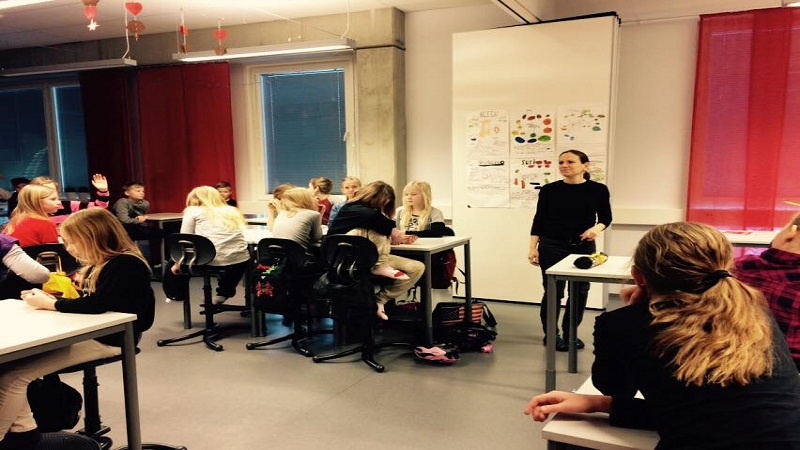When family problems are detected, the school should strive to use its most effective tool: guidance services and parent training. The school has a decisive role in the evolution of the problem. Therefore, the school could help the student and his family to face it or, on the contrary, aggravate the situation.
All schools must have a family service that helps students, parents and teachers to solve crisis situations. Using this, and before a great variety of problems. The school could detect them early and intervene coordinating professionals, parents and teachers.
This practice converts schools into authentic training centers for life. And gives new meaning to collaboration between parents and teachers. At the moment, the school must establish lines and general principles to detect family problems. And then provide solutions to specific problems.
Actions that the school should take when detecting family problems

Team work
The teacher can help the family within the context and the functions that are theirs as integral parts of the educational community. This is one of the measures that the school should take when detecting family problems. The school must know what to expect and the type of support it could provide to the student. And his or her family, depending on the situation.
Acting axes
Some of the main lines of action of the school when detecting family problems depend on the keys of the internal organization:
- The early detection of problems
- The information of resources and possibilities of solution
- The adaptation to the situation of the student
Regarding these three aspects, each school has to make its own decisions according to its own resources. And possibilities to go forward little by little without creating insurmountable fissures within the center itself.
To achieve this, teachers must know what aspects to be alert to possible changes in student behavior. And how to act in different situations. Likewise, they must observe the evolution of certain problems and crises, both family and personal.
In addition to detecting family problems, the school must make decisions about how information flows internally and which interlocutors will be the most appropriate. You should also look for services and external professionals that may be useful to follow up on cases. They must know, above all, to what extent to make more flexible the norms. And academic rhythms in correspondence with the personal situation of the student.
The impact on academics
The function of the school is to detect family problems, but not solve them. It can help prevent the probable school failure of the affected student. At least, it can alleviate the affective impact that the deterioration of his performance could have on him.
It is about paying more attention, making schedules and attendance more flexible, supporting them in the study, helping them to plan their priorities according to their real possibilities, etc. The important thing is to avoid a negative attitude of the student towards the study or the school. Or that the teachers desist from their efforts.
Long-term approach
When detecting family problems, the school must facilitate that the student and their parents can access it. It is not about resolving a specific situation. But about conveying the feeling that the school is concerned about these issues.
Most frequent family crises
Many times without the school having noticed anything, the student or his family talk to someone responsible for the center to make them part of the problem. However, it is normal for the school to detect family problems. And take action on behavioral or emotional changes. The main family crises are usually motivated by:
Crisis by separation or divorce
The most appropriate behavior on the part of the parents would be to try to resolve their differences without confrontations, seeking mutual agreement through a process of family mediation.
The children will go through many different states and feelings. All these emotions if they are not expressed properly could block the student. And make him explode in the most unexpected moments. The school should facilitate the student’s relief; give him an academic margin, especially in minor or daily tasks.
In the exam period, it will be determined how to face them, what is possible to assume and what is not. And help the student to understand that his performance decreases. Ideally, this process should be accompanied by the help of a professional, a therapist that the school could recommend.
Crisis due to illness or death
Tensions at home and lack of parental control generates a decomposition of affectionate and behavior in the student.
It is not strange, then, that the student suddenly goes from being very responsible to having an attitude of nonchalance. However, the administration devotes few resources to the support of families. This is why there are hardly any services that can benefit and that the school can recommend.
However, the support of a social worker who knows well the public and private resources of the environment can be very useful. In case the student is willing to receive psychological support, the school will not hesitate to refer you to a trusted professional.
Crisis for drug use
The role of the school in the face of drug use is essential in terms of prevention. However, if the student has already begun to consume them, the situation is so serious that it requires the intervention of specialized services and professionals.
If the school has suspicions or proof of this, it must inform the parents of the students immediately . This must be done with a lot of tact, since the reaction of the parents is that of the negative on many occasions.
The student will be treated as one more and the rules will be applied to all without concessions or acrimony. The school will try to be neutral in the deal, especially when it comes to sanctioning. Academic requirements should not be reduced, except if the student goes to a treatment center and by direct request of the parents.
Crisis due to mistreatment or sexual abuse
In these cases, the first obligation of the school will be to protect the child. The denouncement of the facts will be made in writing and with acknowledgment of receipt of the social services of the area. From that moment, social services will be the ones that take action on the matter at all levels. The school cannot and should not do more, so as not to interfere or hinder the intervention of the professionals in charge of dealing with these matters.
You can collaborate in everything that parents request. They could also require social services to take action on it if they do not act, as well as carry out possible orders at the request of social services.
In addition, by mutual agreement between the parties, the center could recommend a private service so that the student receives psychological attention periodically.
Anorexia and bulimia crisis
The school cannot ignore that it is facing a serious pathology that, in extreme cases, could cause the adolescent’s death. It requires, in many cases, hospitalization and psychiatric treatment.
The school plays a great preventive role to inform and train their students and parents about this problem. However, once it appears, the results of the intervention decrease considerably.
The students who suffer from this disorder usually do not have academic problems, because they are very perfectionist. They have a great capacity for self – control, except when the disease is very advanced and they cannot follow the progress of the course. The school can help you not to dissociate from the studies and not be distressed by the grades.
In summary, these are some of the measures that schools can adopt in the detection of family problems. We also mention ways to proceed in each of the family and personal crisis cases.







